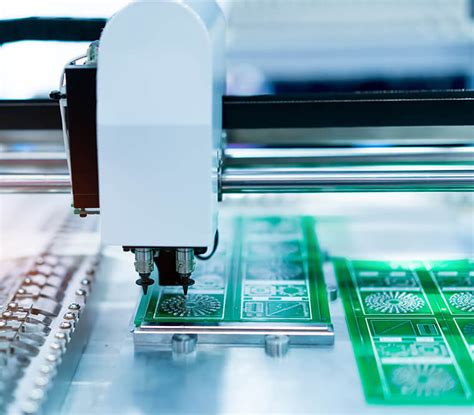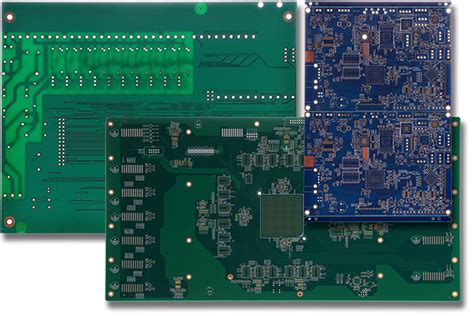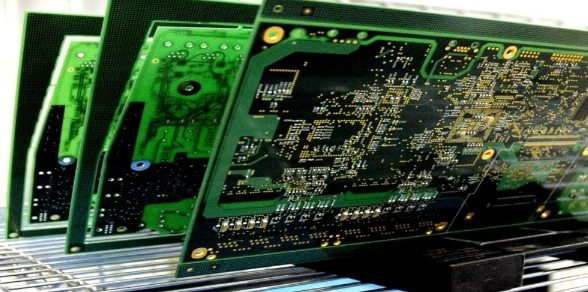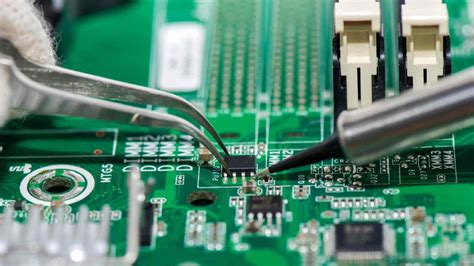Unlocking Innovation: The Power of Custom PCB Assembly
Key Takeaways
Custom PCB assembly represents a critical evolution in modern technology, acting as a catalyst for innovation across various domains. The unique capabilities of tailored pcba solutions empower businesses to address specific design requirements, ultimately enhancing both functionality and efficiency in their products. One of the core advantages is the ability to optimize design for performance, which allows companies to differentiate themselves in competitive markets. Notably, industries such as automotive, telecommunications, and medical devices have successfully integrated custom PCB assembly into their processes, leveraging the flexibility of these designs to improve product reliability and user experience. As technology progresses, the shift towards smaller, more complex devices necessitates the development and implementation of sophisticated pcba techniques that can seamlessly align with these advancements. This landscape not only fosters innovation but also presents opportunities for companies to solve traditional manufacturing challenges through streamlined processes and enhanced connectivity solutions. Understanding these key aspects is vital for stakeholders aiming to harness the full potential of custom PCB assembly in their respective fields.
Introduction to Custom PCB Assembly: A Catalyst for Innovation
In today’s rapidly evolving technological landscape, custom PCB assembly has emerged as a crucial element driving innovation across multiple sectors. By allowing the design of printed circuit boards (PCBs) tailored to specific requirements, businesses have the opportunity to enhance functionality, reduce production costs, and expedite time-to-market. The process of pcb assembly, where raw materials are transformed into sophisticated circuit boards, facilitates the creation of products that not only meet but exceed market expectations. This adaptability is vital in a competitive environment where unique design requirements can set one organization apart from another. As industries move towards more complex electronic systems, the role of PCBA becomes increasingly pronounced. The shift towards automation and IoT devices illustrates how customizable circuit boards are not merely advantageous; they are essential for maintaining relevance and fostering creativity in product development.
“The future belongs to those who believe in the beauty of their dreams.” – Eleanor Roosevelt
This sentiment resonates within organizations that embrace custom pcb assembly as a means to innovate continuously. By investing in tailored solutions, companies can respond more effectively to changing consumer demands and technological advancements, ultimately unlocking a new realm of possibilities for product performance and reliability.
The Advantages of Tailored Circuit Boards in Modern Design
Custom PCB assembly offers numerous advantages that significantly enhance the capabilities of modern design. By utilizing tailored circuit boards, engineers and designers can achieve optimal performance that aligns closely with specific project requirements. One of the primary benefits is the flexibility it provides in terms of design complexity. With custom PCBA solutions, designers can integrate multiple functionalities into a single board, reducing both size and weight while improving reliability. Furthermore, these components enable more efficient production processes by adapting to varying volumes, from small-scale prototypes to large batch productions.
Another key advantage lies in the ability to meet unique design specifications that off-the-shelf products often cannot accommodate. This capacity for customization not only supports innovative product development but also fosters faster time-to-market for sophisticated applications in various sectors, including consumer electronics, automotive, and medical devices. Moreover, tailored circuit boards often result in enhanced performance characteristics such as increased durability, better heat dissipation, and lower power consumption.
As industries continue to evolve and push technological boundaries, the role of custom PCB assembly becomes even more critical. It empowers companies to differentiate their offerings and stay competitive by leveraging unique designs that traditional manufacturing methods may struggle to fulfill. In essence, embracing PCBA solutions sparks a wave of innovation that significantly propels forward-thinking design strategies across a multitude of applications.
Key Industries Benefiting from Custom PCB Assembly
Custom PCB assembly (often referred to as PCBA) has revolutionized the landscape of numerous industries by providing tailored solutions that cater to specific needs. Electronics, telecommunications, automotive, and medical sectors are particularly notable for their extensive use of custom PCB assembly. These industries capitalize on the unique capabilities that customized circuit boards offer, enabling them to innovate and enhance product performance.
In electronics, for instance, companies are leveraging PCBA to create compact designs that maximize functionality without compromising size. This is paramount in an era where consumer expectations lean towards sleek and powerful devices. Similarly, in the telecommunications field, tailored circuit boards allow for improved signal quality and durability in equipment that supports ever-increasing data traffic.
The automotive industry benefits significantly from custom assembled PCBs as well, with applications ranging from advanced driver-assistance systems (ADAS) to electric vehicle (EV) technologies. Here, the reliability and performance of tailored boards can directly influence vehicle safety and efficiency. The medical sector also sees great value; customized PCBs are essential for high-precision devices such as diagnostic tools and patient monitoring systems where meticulous design is crucial.
Table: Key Industries Utilizing Custom PCB Assembly
| Industry | Applications | Advantages |
|---|---|---|
| Electronics | Smartphones, tablets | Compact design, enhanced functionality |
| Telecommunications | Routers, base stations | Improved signal quality |
| Automotive | ADAS, EV systems | Reliability in critical applications |
| Medical | Diagnostic tools, monitoring devices | Precision tailored for safety |
In summary, the adoption of custom PCB assembly across these industries not only facilitates meeting unique design requirements but also paves the way for continuous innovation. The evolving nature of technology demands such adaptability in product development to stay competitive in a fast-paced market.
Exploring the Applications of Custom PCBs Across Sectors
Custom PCB assembly plays a pivotal role in a myriad of industries by delivering tailored solutions that enhance functionality and performance. In sectors such as automotive, electronics, medical devices, and telecommunications, the demand for precise and specialized pcba solutions is ever-increasing. For instance, in the automotive industry, advanced driver-assistance systems (ADAS) require intricate circuit designs that a standard board simply cannot fulfill; here, custom pcb assembly becomes essential. Similarly, in medical technology, devices like MRI machines or bespoke diagnostic tools rely on reliable and focused circuit designs to function optimally. The flexibility afforded by tailored circuit boards allows engineers to innovate quickly while addressing specific regulatory requirements and design specifications. Furthermore, industries such as consumer electronics are pushing for more compact, efficient, and powerful devices; custom PCBs empower designers to maximize space usage while minimizing electromagnetic interference. The diversification of applications underscores the transformative impact of custom PCB assembly, reinforcing its importance in today’s technology-driven landscape. As sectors continue to evolve, the capacity for customization within pcba is set to drive further innovations, making it an invaluable asset across the board.
Transformative Impact: How Custom PCB Assembly Enhances Product Performance
The landscape of modern technology is rapidly evolving, and at the heart of this transformation lies custom PCB assembly (PCBA). Tailored circuit boards provide unparalleled flexibility, enabling engineers and designers to create solutions that are precisely aligned with specific application needs. This level of customization allows for significant enhancements in product performance, as these PCBA solutions are optimized for efficiency, reliability, and functionality. By using advanced materials and design methodologies, custom PCB assembly can dramatically reduce signal interference and improve thermal management, which is vital in high-performance electronics. Industries such as telecommunications, medical devices, and automotive are reaping substantial benefits due to these innovations. The ability to incorporate unique features—like enhanced power distribution or miniaturized components—means that products can achieve greater performance metrics while maintaining compact sizes. This not only satisfies current market demands but also prepares products for future technological advancements. The transformative impact of custom PCB assembly extends beyond merely enhancing existing products; it opens doors for entirely new applications and innovations, allowing companies to stay ahead in their respective fields. By embracing custom PCBA, businesses are equipped not just to meet but to exceed the expectations of an increasingly competitive environment.
Challenges and Solutions in Custom PCB Design and Manufacturing
The process of custom PCB assembly is not without its challenges, particularly in the realms of design intricacies and manufacturing reliability. One notable challenge is the increasing complexity of electronic designs. As products integrate more features and functionality, design engineers face the daunting task of creating pcba layouts that accommodate densely packed components while ensuring durability and performance. This complexity can lead to increased turnaround times and higher costs if not managed effectively.
Another significant challenge lies in sourcing high-quality materials that meet specific requirements, including thermal management and signal integrity. Variations in material quality can result in inconsistent performance, making it essential for manufacturers to collaborate closely with reliable suppliers to ensure that custom PCBs are built to specification.
To address these challenges, innovative design software tools have emerged that assist engineers in optimizing layouts for manufacturability. Additionally, implementing advanced testing protocols during the pcb assembly process can identify potential issues early on, reducing the risk of costly revisions down the line. Furthermore, fostering open communication between engineers and manufacturers can streamline workflows and enhance overall project efficiency.
Through tackling these hurdles with effective strategies, companies can harness the full potential of custom PCB assembly, driving innovation while ensuring that their products meet both performance standards and consumer expectations.
Future Trends in Custom PCB Assembly and Innovation
As industries continue to evolve, the future of custom PCB assembly (often referred to as PCBA) is poised to usher in significant innovations. One of the most promising trends is the increasing integration of smart technology into circuit boards, allowing for more efficient data processing and connectivity. The rise of Internet of Things (IoT) applications necessitates custom PCBs that can seamlessly support advanced sensor integration, thereby enhancing functionality and performance. Moreover, the demand for sustainability is driving manufacturers to explore eco-friendly materials and processes in PCB assembly, reducing waste and energy consumption. Additionally, advancements in automation and artificial intelligence are streamlining the PCBA workflow, leading to shorter lead times and higher precision in production. These factors collectively contribute to making custom PCB assembly not just a method for creating electronic components but a pivotal aspect in shaping innovative products that meet the dynamic needs of various industries. As a result, staying attuned to these future trends will be essential for businesses aiming to maintain a competitive edge in their respective sectors.
Case Studies: Successful Implementations of Custom PCBs Across Industries
Custom pcb assembly has revolutionized various sectors by enabling businesses to design and implement tailored solutions that meet their specific needs. One notable case is in the automotive industry, where companies have adopted pcba to create complex control systems that enhance vehicle safety and efficiency. For instance, one manufacturer utilized custom pcb assembly to develop an advanced driver-assistance system (ADAS), significantly improving the responsiveness and accuracy of safety features. Another example can be found in the medical technology sector, where custom pcbs are essential for creating compact devices that monitor patient health in real time. A leading medical device firm leveraged custom pcb assembly to innovatively integrate multiple functionalities into a single device, streamlining operations and increasing reliability.
Moreover, the consumer electronics industry shows how custom pcba can create unique user experiences. A prominent electronics company successfully implemented a custom circuit board that supports enhanced audio performance in its latest sound system. This targeted approach allowed them to differentiate their product in a competitive market while optimizing performance.
These case studies illustrate not only the versatility of custom pcb assembly, as seen across these diverse industries but also highlight its impact on enhancing product performance, enabling innovation, and fulfilling unique design requirements. By examining these successful implementations, it’s evident that the role of tailored circuit boards is pivotal for driving advancement and efficiency in modern technology solutions.
Conclusion
In conclusion, the burgeoning field of custom PCB assembly (PCBA) encapsulates a vital shift towards enhancing innovation across various industries. The ability to develop tailored circuit boards is not merely a technical evolution; it represents a strategic advancement that allows companies to push the boundaries of what is possible in product design and functionality. As industries increasingly integrate advanced technology, the demand for custom PCBA solutions will likely continue to soar, driven by the need for unique designs that cater to specific operational requirements. Additionally, by investing in pcba innovations, companies can achieve greater efficiency, reliability, and performance in their products. The transformative potential of custom PCB assembly extends beyond mere components; it enables businesses to respond agilely to market demands while also fostering a culture of continuous improvement and adaptation. By harnessing these advantages, organizations are well-positioned to thrive in an ever-evolving landscape of technological advancement.
FAQs
What is custom PCB assembly?
Custom PCB assembly, or PCBA, refers to the process of creating tailored printed circuit boards that meet specific design requirements and functionalities for various applications. This involves assembling electronic components onto a custom-designed PCB.
Why should I choose custom PCB assembly over standard options?
Choosing custom PCB assembly allows for enhanced flexibility in design, enabling the development of solutions that cater to unique challenges and specifications, which standard options may not provide.
What are the key benefits of using custom PCBs?
Custom PCBs offer numerous benefits including improved performance, greater reliability, tailored compatibility with specific components, and optimization for space and weight in designs. These factors collectively contribute to better overall product functionality.
In which industries is custom PCB assembly most beneficial?
Industries such as consumer electronics, automotive, medical devices, telecommunications, and aerospace significantly benefit from custom PCBA, as they often require specialized designs to operate effectively in specific applications.
How does the custom PCB assembly process work?
The process typically involves several stages: designing the circuit boards using specialized software, fabricating the PCB itself, followed by assembling various electronic components through soldering techniques. This precise approach ensures high-quality and functional outputs.







